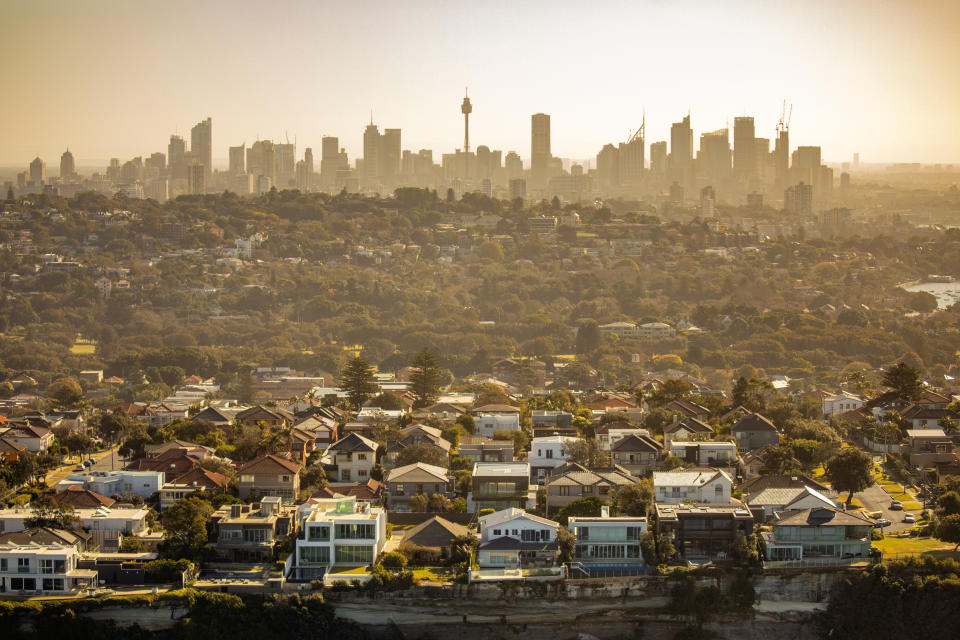Housing values fall for third month in a row

Australia’s property market has fallen for the third consecutive month in a row, with the median house value down 0.6 per cent in July.
Sydney and Melbourne drove the fall, with Sydney falling 0.9 per cent and Melbourne 1.2 per cent, the biggest capital city fall.
Perth fell 0.6 per cent, while Brisbane dropped 0.4 per cent and Hobart 0.2 per cent. Darwin fell 0.3 per cent.
Canberra and Adelaide were the only capital cities to record increases in value, up 0.6 per cent and 0.1 per cent respectively.
Regional homes have held up better, with housing values unchanged in July.
While the fall in values has been widespread, CoreLogic head of research Tim Lawless noted that it had been a reasonably smooth slide.
“The impact from Covid-19 on housing values has been orderly to date, with CoreLogic’s national index falling only 1.6 per cent since the recent high in April and housing turnover has recovered quickly after its sharp fall in late March and April,” Lawless said.
“Record low interest rates, government support and loan repayment holidays for distressed borrowers have helped to insulate the housing market from a more significant downturn,” Lawless said.
The total number of homes for sale has fallen another 4.3 per cent in the four weeks to 27 July, taking it 15.2 per cent below where the figure was at this time last year.
“Additionally, increased demand driven by housing specific incentives from both federal and state governments, especially for first home buyers, have become more substantial.”
Cliff approaching
However, as JobSeeker, JobKeeper and mortgage repayment deferrals are set to taper from late September, Lawless predicts house prices will continue to fall further.
“Urgent sales are likely to become more common as we approach these milestones, which will test the market’s resilience,” Lawless said.
“Similarly, the recent concerns of a second wave of the virus and the potential for renewed border closures and stricter social distancing policies are likely to further push consumer sentiment down. This is likely to weigh on both home buying and selling activity more broadly.”
Expensive homes are expected to lead the fall. Higher value homes historically fall first and furthest during difficult economic times, Lawless said, with the Covid-19 downturn no different.
The top 25 per cent most expensive homes have fallen 2.9 per cent, while the cheapest quarter has fallen 0.5 per cent since the end of March.
Sydney and Melbourne have also been bearing the brunt of the value falls, with Sydney’s most expensive homes tumbling 2.5 per cent over the last quarter and Melbourne’s most expensive plunging 5.2 per cent.
But property is performing better than expected
Lawless said Australian property has weathered the crisis better than anticipated, with the decline in values fairly moderate.
However, the property market’s real test will come in October.
“As stimulus measures wind down and borrowers taking a repayment holiday face up to their debt, it’s logical to expect a rise in distressed properties coming onto the market,” he said.
“The extent to which this causes additional downwards pressure on home prices depends on how the Australian economy is travelling at that time. Further virus outbreaks present a clear and present danger to the depth and length of the recession, and the performance of the housing market.”
Want to take control of your finances and your future? Join the Women’s Money Movement on LinkedIn and follow Yahoo Finance Australia on Facebook, Twitter and Instagram.


 Yahoo Finance
Yahoo Finance 
